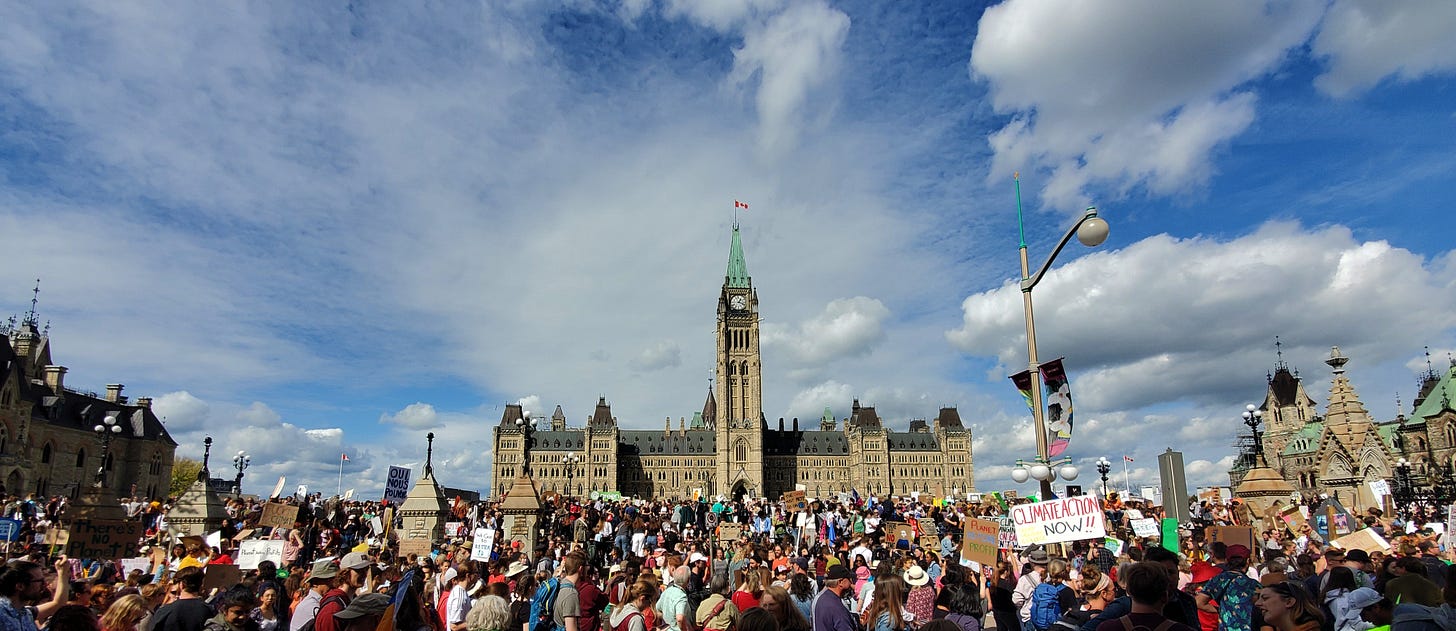A historic climate victory
Canada's recent election provides much-needed hope that truth can prevail over disinformation.

Image credit: Mike Gifford/Flickr
With the exception of cockroaches, rodents, and flesh-eating bacteria, all life on earth is threatened by the climate crisis.
So why don’t voters ever mobilize around large-scale climate action?
Two reasons are most commonly referenced: The fossil fuel industry, and ourselves. The fossil fuel industry has engaged in a 30-…


